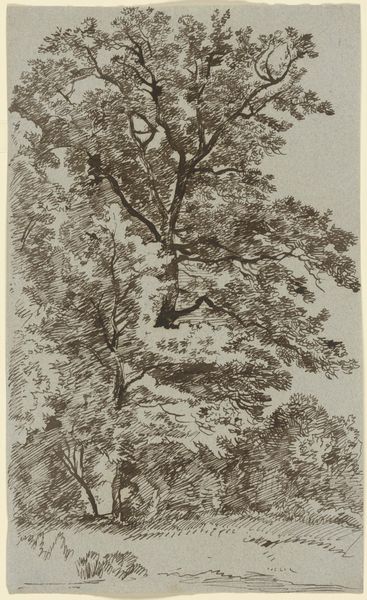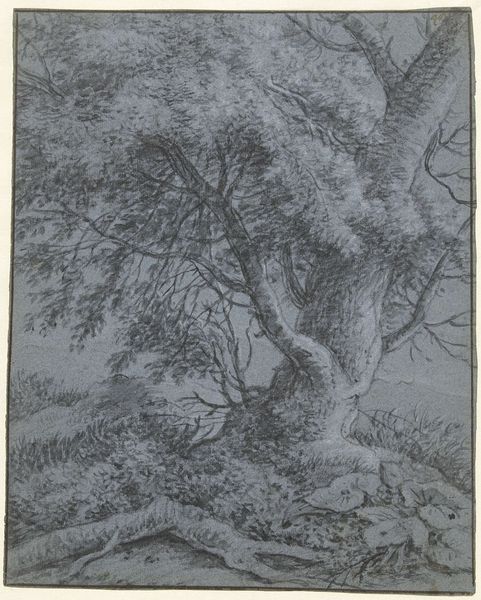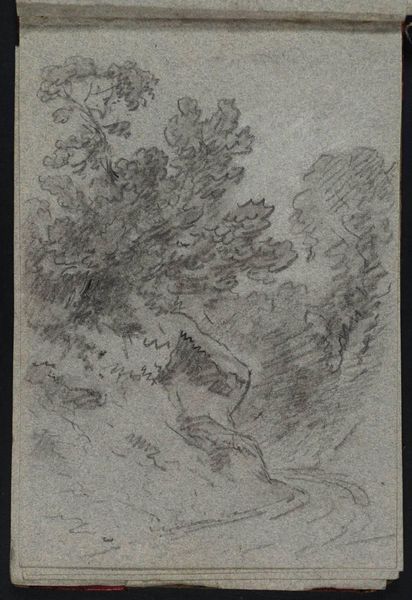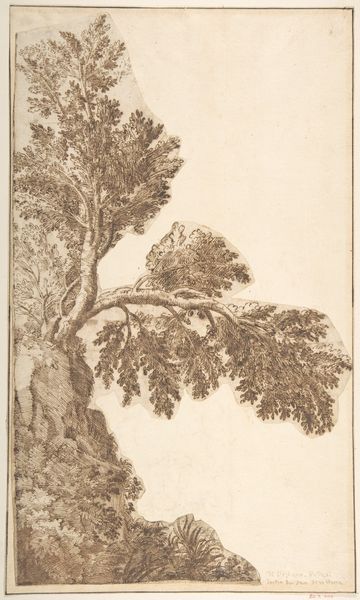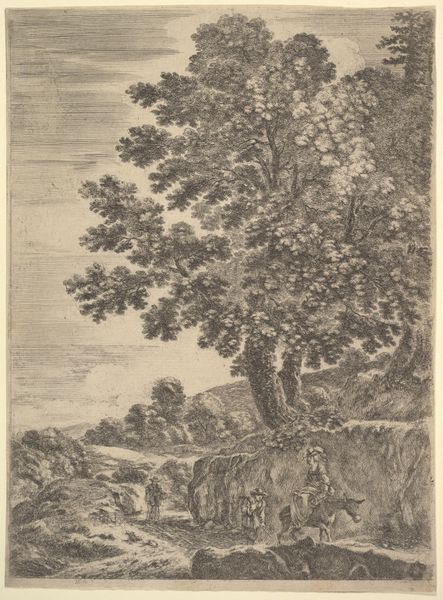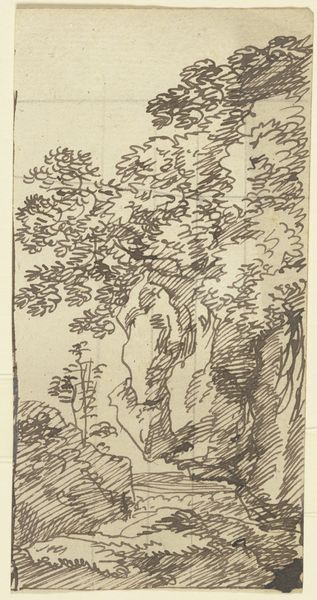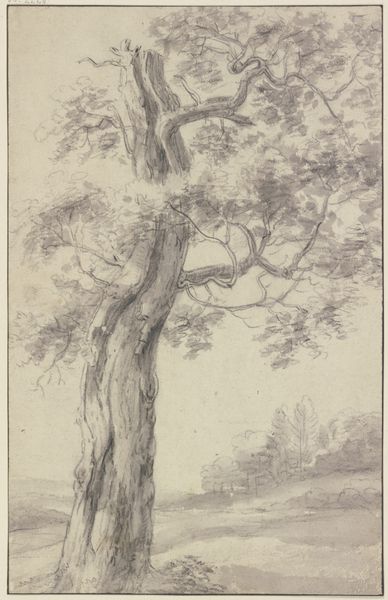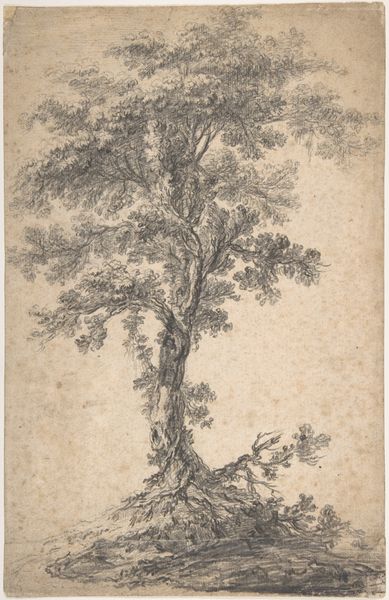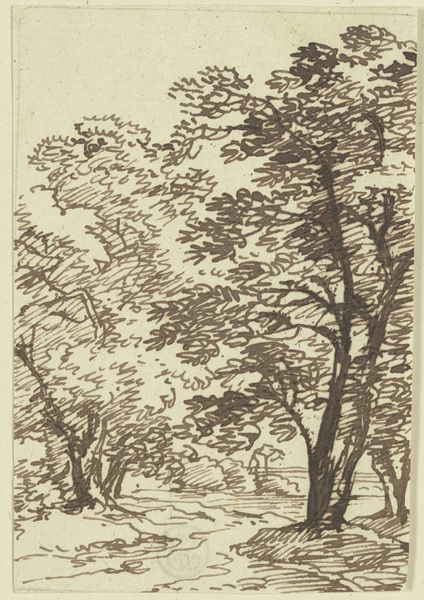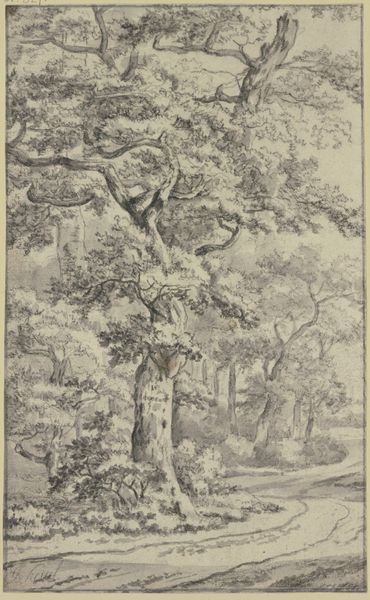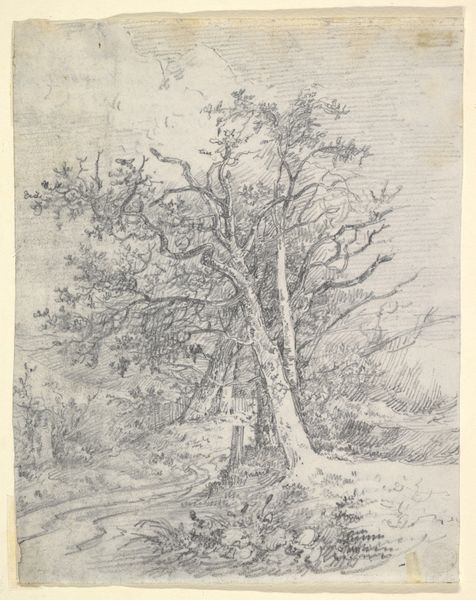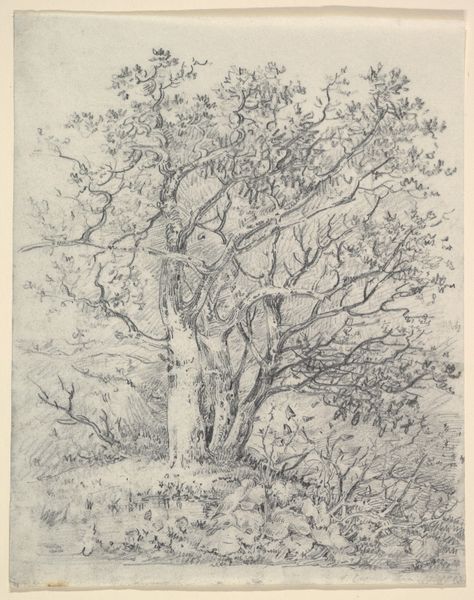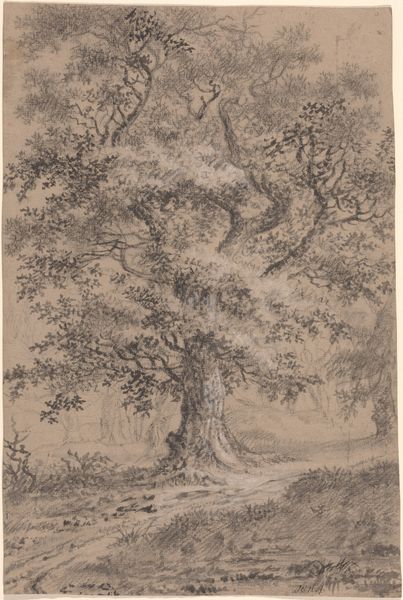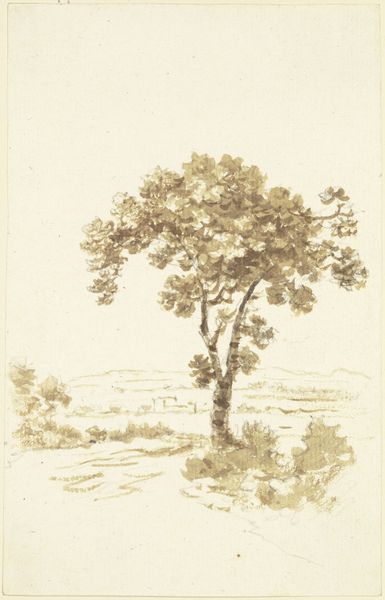
drawing, paper, ink, charcoal
#
drawing
#
organic
#
pencil sketch
#
landscape
#
etching
#
paper
#
organic drawing style
#
ink
#
charcoal
Dimensions: 237 × 153 mm.
Copyright: Public Domain
Curator: This drawing is titled "Road Past Trees," and the artist is Pieter Gaal. The Art Institute of Chicago, where we are, has it listed without a specific date. The medium appears to be primarily charcoal and ink on paper. Editor: Well, immediately I’m struck by how ethereal it feels, almost like a dreamscape fading at the edges. The composition seems to hinge on that towering tree—the real weight, you know? Like an old soul guarding a forgotten path. Curator: Absolutely. This organic style emphasizes an embodied sense of place. We should consider the power dynamics inherent in landscape art during its historical moment, reflecting perhaps both an idealized pastoral and an assertion of dominion over the land itself. Questions of ownership and access are unavoidable. Editor: See, that’s fascinating, but I’m mostly just lost in those wispy lines creating such volume. It's almost a breathing entity—do you ever just look at something and feel like it sighs back at you? Like the artist caught some secret, shared moment with that tree and just had to put it on paper. Curator: Landscape art can serve as propaganda as much as reverie. Thinking about this work through a post-colonial lens, we might ask: Whose road is this, really? Whose trees? Who benefits, and who is excluded by such a seemingly innocent scene? The ability to depict, to define, implies control. Editor: I can get behind the deconstruction, I suppose. But if we lose the sheer *feeling* of a thing, that moment of connection, we lose everything, right? Curator: It is precisely through critical frameworks that we come to truly know what is lost, and, crucially, what remains hidden, or perhaps even strategically obscured. Editor: So in its own quiet, charcoal way, this drawing kinda embodies the big, messy conversation then, doesn't it? Makes you think. Curator: Exactly. It compels us to continuously excavate both historical truths and subjective encounters that together compose our understanding of the world around us.
Comments
No comments
Be the first to comment and join the conversation on the ultimate creative platform.
